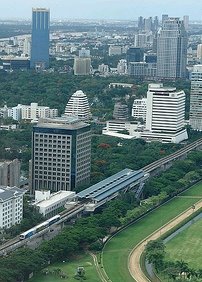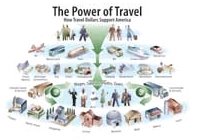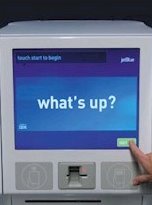
The Thailand tourism industry is to be marketed under a new tagline, "Unforgettable Thailand", as part of the new strategies for 2006/07 finalised at the
Tourism Authority of Thailand's annual marketing meeting.
The new advertising and PR campaign will be launched soon and "focus on delivering an unforgettable experience to visitors," said TAT Governor Mrs Juthamas Siriwan.
"In a major departure from previous policy, targets will now be revenue-based designed to achieve a revenue target rather than an arrivals target," she said.
Marketing activities by head office and branch offices will be geared towards stimulating consumers to spend more money in Thailand, with each overseas office and domestic region having a certain revenue target to meet.
This may include more aggressive promotion of shopping, for example through joint promotions with major retail and shopping complexes, more emphasis on Thailand being a hub for wellness and spas and other revenue-generating activities. These new initiatives were discussed at the TAT Marketing Action Plan 2007 held between 15-19 August 2006. Mr. Pracha Maleenont, Caretaker Minister of Tourism and Sports presided over the opening day and the private sector and media were given a briefing on August 21.
A number of focus groups were organised prior to the main meeting to generate proposals and ideas for further in-depth discussion. On the international marketing sector, the most important consideration is the creation of a clear, appropriate and potentially long-term brand image, solving the growing problem of zero-cost tours, boosting tourism during the low season, expanding land transportation, and stressing linkages with the Greater Mekong Subregion.
The TAT executives also discussed ways to boost utilisation of the Internet, especially to raise Thailand's brand image among tour operators, organise more special events, introduce new tourism destinations and encourage foreign investment in tourism, especially in new products.
In addition to the ongoing marketing plan, the meeting discussed ways to adapt and adjust the plans in accordance with changes in the underlying conditions and the occurrence of crises.
It was noted that in addition to the growth in numbers, Thailand is becoming a year-round destination with the low-season period now confined only to April to June. Although Bangkok and major tourism destinations remain popular among international visitors, tourism income is also growing in some of the new destinations.
Overall, the arrivals are doing well with strong growth in the first half of 2006, indicating strongly that the impact of the December 2004 tsunami is long over.
Markets like
China,
Japan,
Korea, Taiwan and Hong Kong are all growing again, mainly due to good economic conditions and more public holidays, leading to more travel to short-haul destinations.
However, Thailand can expect to face high competition in these markets as other destinations like Vietnam and Philippines are also raising their marketing profile.
[Source from breakingtravelnews.com]
 The public normally thinks that the travel and tourism industry consists of travel agents, airlines, hotels, and rental cars. However, this industry is 95 percent small business. Many of these segments are represented in a template titled, "The Power of Travel: How Travel Dollars Support America."TIA created this PSA as an artwork template that you can use to make your own window posters, meeting flyers, counter cards, tent cards, luggage tags, buttons, full size posters, advertisements, publication covers, newsletter fillers, and presentation slides. Help tell travel and tourism's story and add your own message too in the space available below the artwork.
The public normally thinks that the travel and tourism industry consists of travel agents, airlines, hotels, and rental cars. However, this industry is 95 percent small business. Many of these segments are represented in a template titled, "The Power of Travel: How Travel Dollars Support America."TIA created this PSA as an artwork template that you can use to make your own window posters, meeting flyers, counter cards, tent cards, luggage tags, buttons, full size posters, advertisements, publication covers, newsletter fillers, and presentation slides. Help tell travel and tourism's story and add your own message too in the space available below the artwork.










 The Thailand tourism industry is to be marketed under a new tagline, "Unforgettable Thailand", as part of the new strategies for 2006/07 finalised at the
The Thailand tourism industry is to be marketed under a new tagline, "Unforgettable Thailand", as part of the new strategies for 2006/07 finalised at the  We’re used to it at airports. We’re resigned to it at grocery stores. Now self-service check-in kiosks in hotel lobbies are multiplying faster than bunnies in springtime.
We’re used to it at airports. We’re resigned to it at grocery stores. Now self-service check-in kiosks in hotel lobbies are multiplying faster than bunnies in springtime. RSS: syndicate this blog (XML)
RSS: syndicate this blog (XML)


